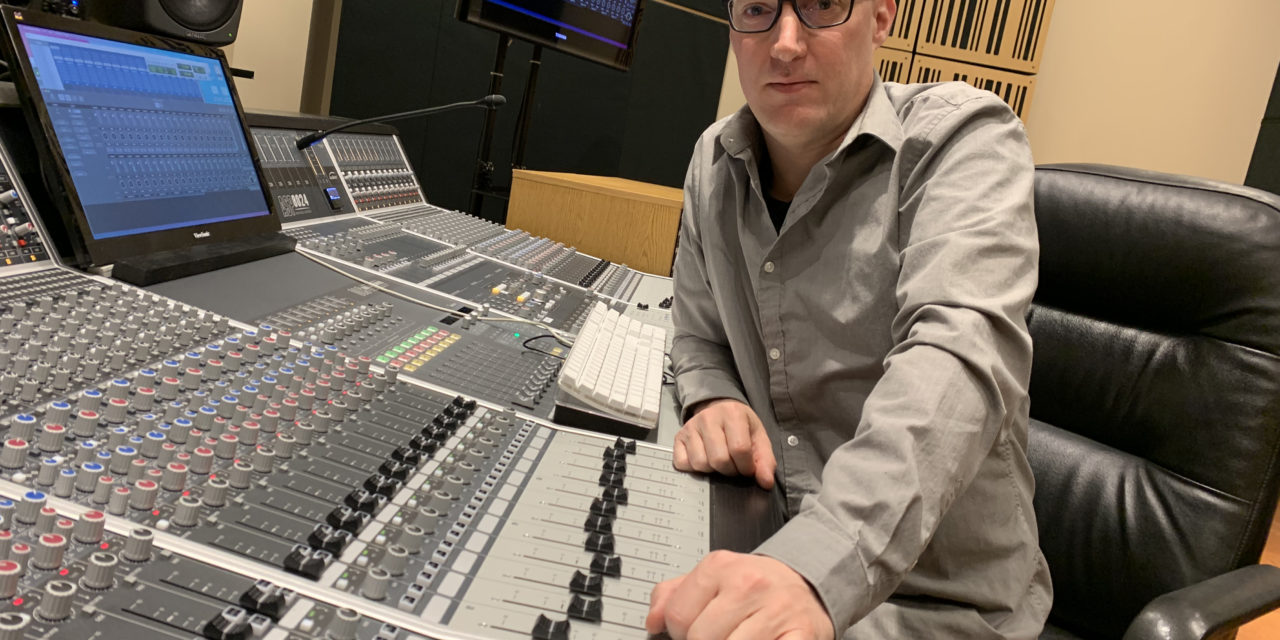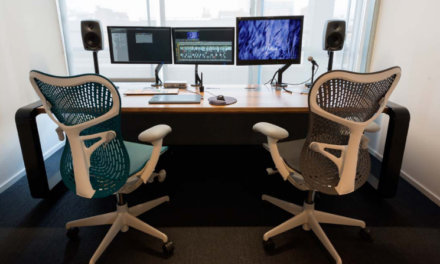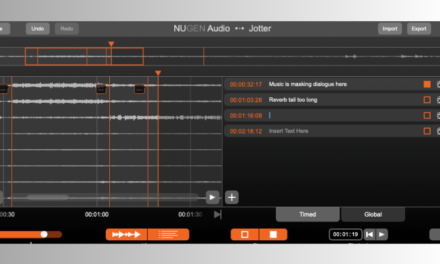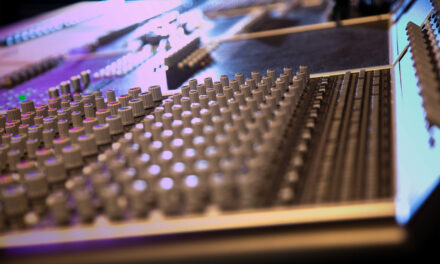College Upgrades Console Swapping ASP8024 for ASP8024-HE Kansas City Kansas Community College (KCKCC) made it easy for themselves, swapping out their decade-old ASP8024 console for a brand new ASP8024 Heritage Edition by Audient. For Coordinator and Professor of Audio Engineering, Dr. Ian Corbett, it was an easy decision. “Teaching signal flow on the ASP8024 has always been easy, so why change a good thing?
“We had used the classic for twelve years and it survived hard student use and a building move so well. Less than one minor repair every five years – that’s a great track record compared to some other products we’ve had.”
Continued reliability and ease of installation were very important to them. “The wiring and infrastructure from the classic ASP8024 was of course already there for the new mixer, so installation could not have been easier. A bunch of students to lift the old board out, and the new one in, and within an afternoon the room was back in operation.”
Ian decided to plan ahead for flexibility, by choosing the Dual Layer Control (DLC) option on the new mixing desk. “This way we can also introduce the hybrid studio and prepare students for the other two studios they will use during their time at KCKCC.”
The Audio Engineering dept at KCKCC comprises three recording studios and a multi-station classroom/lab, as well as comprehensive live sound systems. The new console is based in a predominantly hardware and hands-on room, the studio students use in their second semester audio engineering class. Each studio is dedicated to a particular class so students have plenty of studio time to complete assignments, so about 10-15 students will use the new mixer each semester.
Fingers on Faders
Ian champions working outside the box. “Recording is into a DAW, however for most of that class the DAW is just functioning as a multi-track machine, not a mixer – encouraging students to get it right as they track it. This hardware mixing experience is essential preparation for entering jobs in the live sound, event production or broadcasting industries – where there is no ‘Command-Z’ and DAWs are not the centrepiece of the production environment.”
There are increasing numbers of students who have their own home studio (DAW and plug-in based) who initially question the need for such a strong hardware focus. “After explaining that the entry-level jobs we typically train for require confidence in real-time hands-on operation and commitment to decision making and not DAW skills; and that the signal flow and troubleshooting skills they will learn will better prepare them for almost anything, they get it and understand our reasoning.”
KCKCC Facility Upgrades
The arrival of the new console coincided with a number of acoustical upgrades to the studios, which had taken a few years to come to fruition. After a move into new rooms giving them four times the space they had in the old building, all rooms have now been renovated to professional standards. “The improvement is huge. The sonic improvements obviously, but having different colours in each room gives the facility a ‘vibe’ it didn’t have previously. It’s truly a pleasure to show to prospective students, and see the excitement the more professional looking – and sounding – environment creates for students using it.”
As before, a lot of the curriculum focuses on music. “Not because that’s where the jobs are, but because it’s a great skill set and preparation for a wide variety of fields,” explains Ian. The course has evolved over the years, however. “In recent years we’ve added more non-music based components to introduce students to a wider variety of career paths, including game audio, audio for video, DANTE and audio networking for example” says Ian. “We’ve also expanded the live sound reinforcement components, and we are now teaching Dolby Atmos mixing after upgrading our 5.1 room to 7.1.4 a couple of years ago.”
To the future
With a grim glance back – “The last two years have been stressful (for everybody), but particularly training for the audio industry” – Ian is pragmatic about the future. “It’s good to know that jobs are out there again. But they’re not all in the places they used to be, so we have to open students’ eyes to where the opportunities are,” he says.
“We are a two-year program preparing students for the widest variety of opportunities we can, rather than graduating ‘experts’ in a very focused field. We will continue to add new technologies and techniques as necessary. The last two years have shown how much more marketable a graduate who also has some video skills is. Installation and networking are probably the areas we will try to expand on next.”
Find out more about the KCKCC audio engineering degree and the audio engineering department on their website or visit them on Facebook
About Ian Corbett
In addition to teaching, Ian operates off-beat-open-hats LLC, providing location recording and sound reinforcement services to (primarily) classical and jazz clients in the Kansas City area. He has recently finished a term as the Vice President (Central USA & Canada) of the Audio Engineering society. He is active with the AES as a presenter, clinician and also host of the AES Student Mixing Critique sessions.





